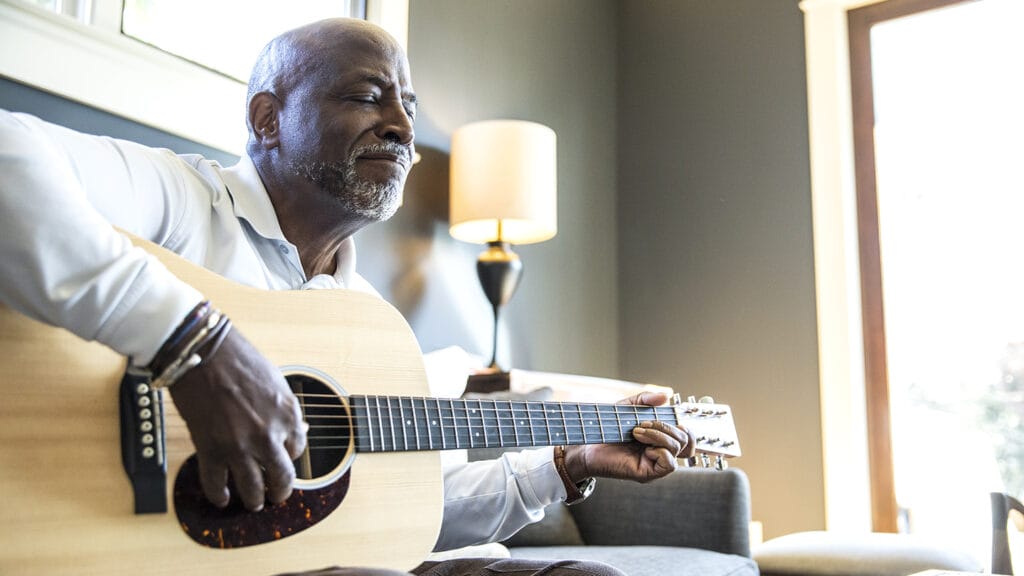
From stress relief and improved mood, to maintaining a sharp mind and connections, music offers an abundance of health benefits for older adults, according to newly released research from the University of Michigan National Poll on Healthy Aging.
Almost all adult respondents (98%) to a survey on their experiences with and feelings toward listening to and making music said they get some health-related benefit from music, including stress relief or relaxation (75%), joy (73%), improved mental health (65%), the ability to spark memories or recall life events (61%) or motivation and energy (60%).
“The Sound of Music” report is based on findings from an online and telephone survey of 2,657 older adults, aged 50 to 80 years, conducted by NORC at the University of Chicago in July and August 2023.
At a time when public support for the arts remains threatened, poll authors said, healthcare providers, policymakers and community organizations should be aware of the important role music that plays in the lives of older adults.
“Music has the power to bring joy and meaning to life,” Joel Howell, MD, PhD, a professor at the U-M Medical School, said in a statement. “It is woven into the very fabric of existence for all of humankind.”
Many adults responding to the poll also said that music helped them feel a spiritual or religious connection (36%), helped keep their minds sharp (31%), connected them to others (27%) and reduced pain (7%).
Most respondents reported listening to music — 85% said they listen at least a few times a week, 80% said they watched musical performances at least a few times in the past year, and 41% said they attended live musical performances at least a few times in the past year.
Many of the poll participants also reported making music with others by singing or playing an instrument. In all, 8% said they sang in a choir or other organized a group in the past year, and 8% said they played an instrument with others at least occasionally.
The survey revealed differences between groups in music listening habits and health impacts.
Respondents who said they were in fair or poor health, or who felt isolated, were less likely to listen to music daily. Howell said that with the increasing concerns about the health effects of loneliness and social isolation, the health-related benefits of music should not be underestimated.
“The power of music to connect us, improve mood and energy, or even ease pain, means it could be a powerful tool,” Poll Director Jeffrey Kullgren, MD, MPH, MS, said in a statement.
Sarah Lenz Lock, senior vice president of policy and brain health at the AARP and executive director of the Global Council on Brain Health, called music a “universal language that has powerful potential to improve wellbeing.”
“AARP’s own research shows that music can play an important role in healthy aging by improving our moods, fostering social connections and, potentially, enriching our brain health,” Lock said in a statement.
The poll, based at the U-M Institute for Healthcare Policy and Innovation, was supported by the AARP and Michigan Medicine, the university’s academic medical center.


